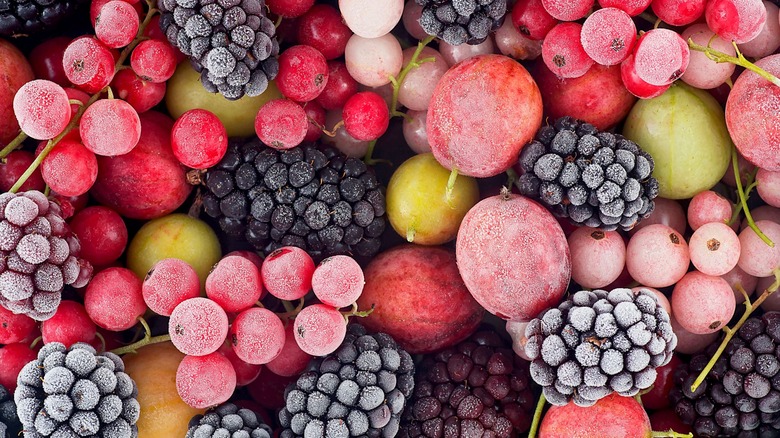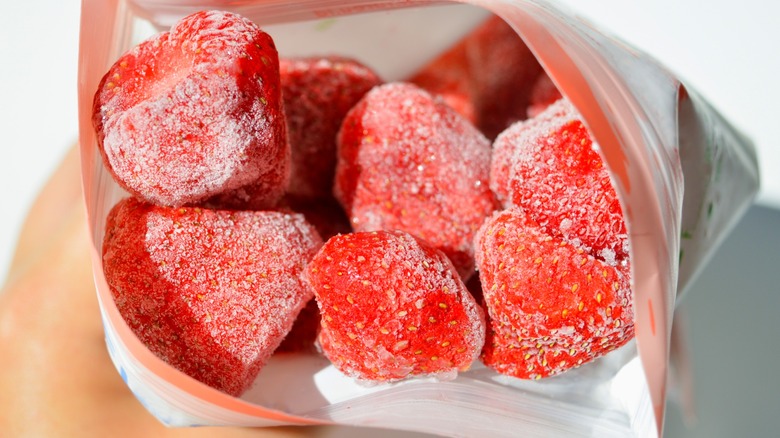What To Look Out For On The Label When Buying Frozen Fruit
Frozen fruit is one of the most versatile ingredients you can keep at home, helping you make everything from more flavorful smoothies to fruit salads with vintage charm. They're also packed with vitamins and antioxidants and, in fact, are typically just as nutritious as fresh fruit. However, you might want to take a closer look at the label; the package you're holding might be a bag of frozen fruit with added sugar.
The added sugar isn't necessarily a bad thing — it may even be beneficial to the flavor in some cases — but you just might not want the extra ingredient, and it can even throw off the measurements in a recipe, like when baking a pie with frozen fruit. Once you double-check the label, make sure your sugar-free frozen fruit is of the best quality possible by looking for the manufacturing date. Fruit is usually frozen at its freshest, so picking the bag with the most recent manufacturing date tends to give you the best quality.
You'll also want to check the label to see if there's any artificial coloring enhancing the frozen fruit's appearance. It's okay if the fruit looks a little dull, since freezing can naturally cause some color loss. Lastly, you'll want to see if the ingredients include ascorbic acid as a preservative; this makes the fruit more tart than you might expect, and depending on the type of fruit, added sugar may actually be the better alternative for preservation.
Why brands add sugar to frozen fruit
Some brands treat frozen fruit with added sugar in order to enhance the flavor since fruits can taste watery and less sweet as they freeze and thaw. Freezing can also affect the acid content, making them more sour. Adding sugar helps mask that tartness and brings the fruits closer to their natural taste.
In many cases, the sugar is added through a process known as osmodehydrofreezing, which involves soaking the fruits in a sugar solution before freezing. The added sugar is absorbed by the fruits via osmosis, causing the fruits to expel some of their water content. This process causes fewer and smaller ice crystals to form during the freezing process, which helps preserve the natural color, flavor, and texture of the frozen fruit.
Osmodehydrofreezing also further extends the quality of frozen foods. Frozen fruit doesn't spoil per se, but it can degrade in quality over time due to loss of moisture content; that's why fruit that's been sitting in your freezer for more than a year can wind up too bland or mushy to use. For people who don't go through their frozen fruit very quickly, the added sugar is a fair tradeoff for keeping it at optimal quality for longer.

